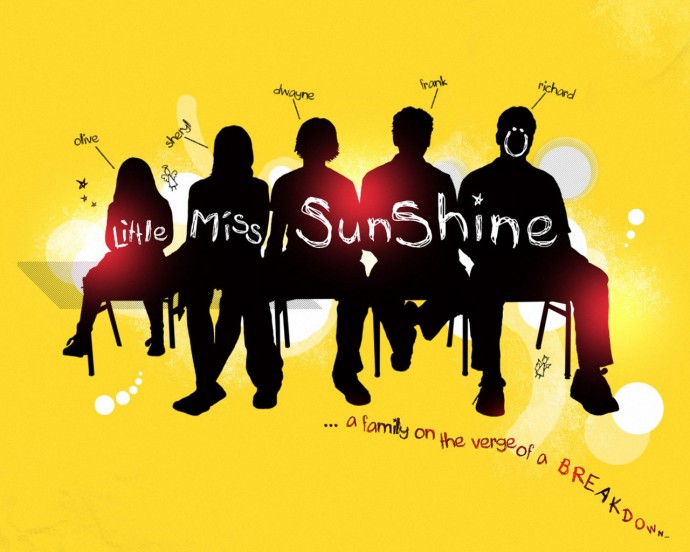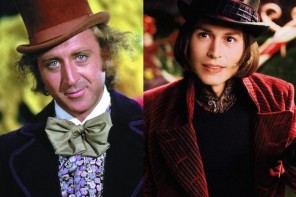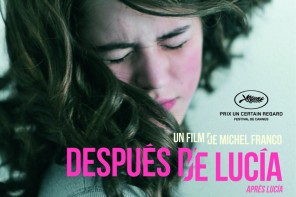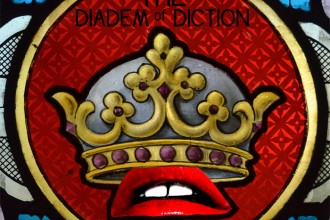The Art of not being different
The film under scope today is Little Miss Sunshine, directed by Jonathan Dayton and Valerie Faris and released in 2006 by Fox Searchlight Pictures. This film is a comedy-drama road movie dealing with the malfunctions of a family of American mavericks. Basically they are a bunch of losers with behavioral and/or emotional conditions. It is said that it is the originality of these characters that made this film successful.
As the film begins, we are successively introduced to the six characters composing the family in a way that does not match the joyful comedy that has been sold. These characters are portrayed by talented actors such as Alan Arkin, who won the Academy Award for Best Supporting Actor for this part, Toni Colette, Abigail Breslin, Paul Dano, Greg Kinnear and Steve Carrell. The first twenty minutes spent introducing the characters are surely the best part of the movie. At first, we cannot tell if it will be a drama or a comedy. By doing so, the movie perfectly matches the expectations that go with an independant film: confusing the issue, subverting the codes, being unpredictable. Then, Olive learns that she is qualified for the “Little Miss Sunshine” beauty contest that will be held in California. Due to money problems, the family packs up in a troublesome old Mercedes van to make the 800-mile road trip. Thus begins the classic funny road movie filled with laughter and joy and all those old cinema tricks. It’s the same old shit and an efficient and entertaining movie indeed.
In addition, it’s not just a feel-good movie: it’s a comforting movie as well. All the members of this family are facing failure. Richard, the father, is an unsuccessful motivational speaker and life coach, though his own life is a mess. Frank, the uncle, is a gay scholar of Proust. He’s been robbed by his boyfriend and his legitimate publishing success by the number two expert of Proust in the US. Olive, not being the erotised six-years-old Barbie doll that usually qualifies for such American beauty contest, is unlikely to win. And her brother, Dwayne, who dreams of becoming an airforce pilot, will eventually discover that he is color-blind. Along this journey, they will learn to accept their own failures and imperfections. It’s all the more so easy as we are clearly shown it’s not their fault in any way. In Olive’s case, it’s because of the lousy, unhealthy aesthetic judgement old, tight-ass people lay on little girls. In Frank’s case, it’s because he’s been put out of place by a usurper. As far as Richard is concerned, his lack of recognition comes from his lack of fame, as his publisher tells him. And finally, Dwayne can blame the genetics: clearly not his fault. So in the end, this film is a cheerfully comforting movie. And to what cost ? Absolutely none, it never takes a chance of putting its audience in discomfort. A way of enhancing that would be to focus on what are the values that remain. Family!
This is the ultimate thing that allows its members to stick together and prevents them from collapsing out of despair. “Ok, you’re a loser but your family will support you!” The values of this film are just the same as Hollywood’s. Consequently, the characters that impersonate these values are fake mavericks. We are invited to laugh at their little irregularities, sure, but to laugh at them with tenderness, these are those little defaults that make them lovely human beings. Yet, those who are different from them are shown to us almost as monsters. Once the family eventually arrives at the beauty contest, we have a one-sided view on Olive’s opponents and judges : those disturbing woman-shaped little girls, those conformists old inhibited judges. This apparently difference-friendly film is in fact much less tolerant than it tries to appear. What if they were the real mavericks? Whereas a movie such as Freaks compels us to redefine our “normality” and “monstrosity”, Little Miss Sunshine is a single-sided view on what and who can be considered normal. And since they finally use the same tricks as Hollywood mainstream and assert almost the same values, we can consider that Faris and Dayton perfectly master the art of claiming difference without being different.
To that extent, they perfectly represent and sum up what “independent movie” has meant in the US since this movie came out. Little Miss Sunshine is a landmark in the history of American independent cinema. Because of its colossal commercial and critical success, it has swayed Hollywood’s attitude towards its margin. The movie grossed over 100,000 million dollars worldwide and won two academy awards. Since then, independent was not a way of producing a film anymore, it was a kind of maverick-label, always exploiting the same topic of the dysfunctional family (Juno, Another Happy Day) and produced and distributed by branches of major Hollywood studios. That is the Sundance-esque product. It has become a genre in itself: an easily identifiable object that can thus be easily marketed.
Fortunately, new things are emerging in the South of the United States, with directors such as Benh Zeitlin and Jeff Nichols. That is, until they merge with the industry. In the end, this is how culture evolves in the United States: counter-culture is swallowed in the mainstream until it reappears somewhere else with a new shape and new faces.







